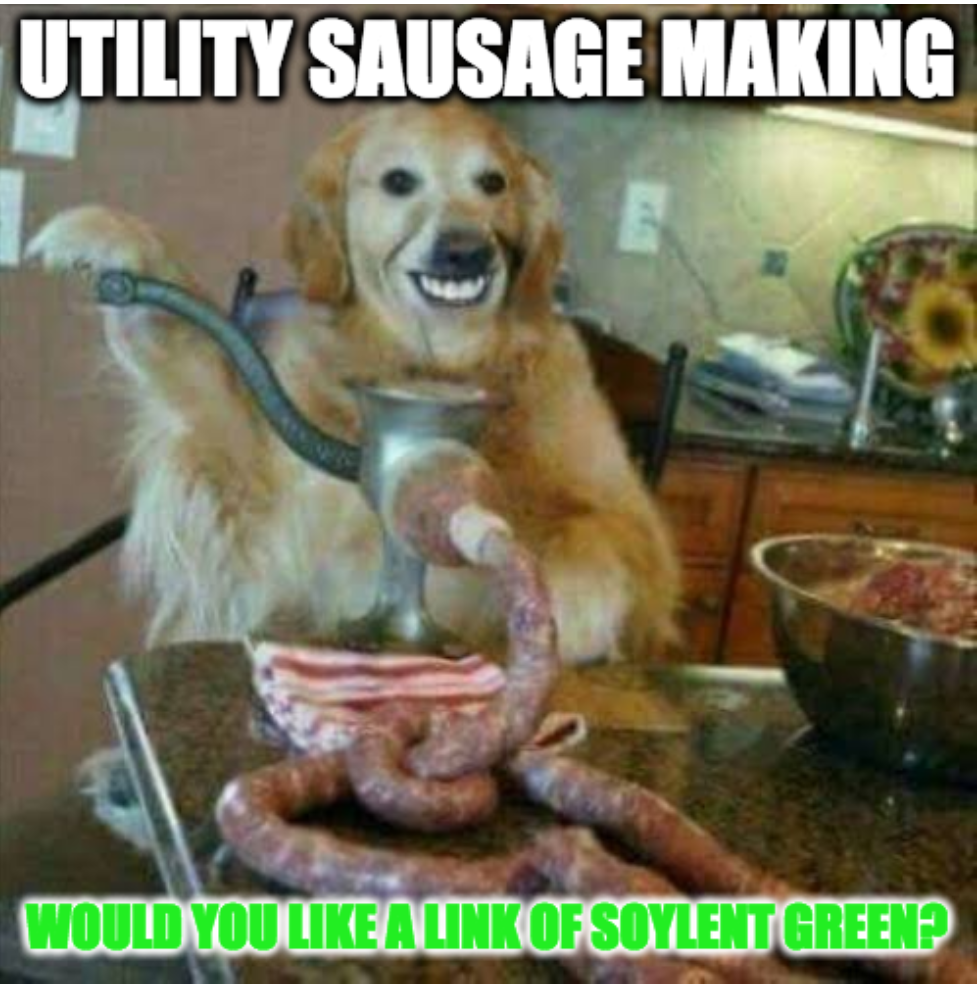Consultation is a chimera. It's an act. They make a big deal out of pretending that your input and concerns matter, but they really don't. You don't matter one bit and nothing you say, or any suggestions you make, have even a ghost of a chance of changing their predetermined plans. Oh, sure, they give you a bunch of busy work to do, maybe a committee or other place to be creative, or just vent, but nothing you produce will ever be good enough to pass muster. Why is that?
It's because utility planning is done behind closed doors. The utilities and the grid planner, like PJM, create a fully-formed project before informing the public and beginning their fake "community consultation." The community is approached with a fait accompli and the only options for the community is where to put it. This is intended to cause community clashes between neighbors over siting, while the real enemy, the utility, gets no pushback at all. Don't fight with your neighbors over where to put new transmission, direct your ire toward the real enemy.
When utilities finally roll out their set-in-stone proposals to the community and pretend to "consult", the community will set to work finding new routes, new ideas, new sources of energy, new ways to build transmission without community impact. The community is industrious, creative, and usually right. But when the community's suggestions are presented to the utility, the utility has 1,001 excuses why none of these solutions can ever work. Where's the "consultation"? It's a one-way street and the utilities simply bat away any new ideas. They don't have to accept, or even consider, your ideas. They're betting they can convince regulators that their ideas are better than yours because they are "experts" and you're just an uneducated peon.
The utilities then present documentation of their fake "community consultation" to regulators and say that the community prefers their plan to other alternatives. The conclusion is that, after consultation, the community is on board with the utility's original plan and therefore regulators should approve it.
This exact scenario is played out in this recent article about a new substation in Fayette County, West Virginia. The utility planned a new substation along Rt. 60 at one of two sites. One of these sites was the desired site all along, but to pretend to give the community a choice, a second dummy site was added to the mix. The community didn't want a new substation at either site. It wanted the utility to put the substation somewhere away from the highway. But, "...the company determined the other suggestions were not viable for the scope of what the project needed to house." Gee, imagine that! None of the other suggestions were viable at all. There was absolutely no way to make them work, or for the utility to compromise at all with what the community wanted. The utility's community consultation consisted of "...outreach and providing simulations of the project’s infrastructure." The utility showed the community photoshopped representations of how the project would look next to the highway if they built it their way. That is not "consultation." It's propaganda. The utility pretended that its picture show made the community happy.
“I think that sort of input that we got from the community and then also doing that modeling to show folks what it was going to look like when it’s constructed both helped along the project,” he said.
The commission observed that while many residents were still opposed to both the Garage Site and the Post Office Site, which is adjacent to the Victor Post Office on Route 60, they seemed more accepting of the Garage Site over the Post Office location.
Community consultation is a performance. Unfortunately, it's one in which the community must participate. But a smart and cohesive community knows how the sausage is made and plays their own games with the utility during community consultation simply to document the community's road to victory in the regulatory process. The utilities are not your friends. The regulators are not your friends. The only ones you can trust are your fellow impacted landowners, your friends, and your neighbors. That's where grassroots action starts and succeeds.

 RSS Feed
RSS Feed